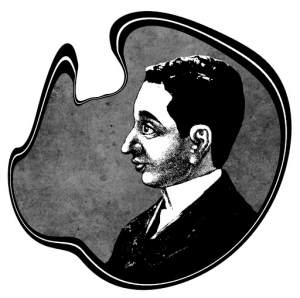Welcome to the Lightning Room, where DeWitt Brinson & Simon Jacobs take turns asking PANK authors extremely difficult questions about their work.
Today, Simon talks with Nuncio Casanova, whose photo collage “Once There Was A Giraffe” appeared in our February issue. Ages later, he brings us wisdom from the old masters.
http://www.coroflot.com/nunciatura
1. This is a wonderfully surreal collage-piece. For mixed-media work like this, what comes first, the images or the words? And how?
Both come first and then I close the eyes. They start to lick and bite each other, rumour has it. I trow thence cut-out heads, one here, two there, and whole phrases grow horns, and vice versa, when I place misspelled words. To be honest it is completely the contrary, everted, backwards, then show it to a mirror and put upside down, cut in pieces and add garlic, onion and oregano, fry in whale oil at high heat for 20 minutes and then send it to Greenland via priority airmail.
2. When it comes to creating surreal, Dada-inspired works like these, how do you select what images/phrases to use to build the story? What is the process of creation like, in a style that traditionally relies on so much experimentation, randomness, and subconscious motivation?
The entire process will be accurately described as capricious, because I say so!
3. What’s the most bizarre place from which you’ve ever cut a photograph?
Where I had glued them! That was quite more impressive… would have been, because the lights went out. Oh, if you had seen!
4. Does this piece come from a larger project?
Yes, it does. After eating the emperor, the crocodile eats almost everyone in the story, including the grandmother of Herodotus and Nuncio Casanova, and then escapes to Leningrad and eats ice cream until he explodes.
5. Can you name one of the thousands of wonders circling around the belly button of a Victorian lady? Please?
Ha! Try to get your own Victorian ladies! Be aware that they are extremely slippery at this time of the year.
6. What else have you learned from Dada?
I learned nothing and besides I have to reassure myself three times per hour that I am awake. I demand my money back!
***
Simon Jacobs curates the Safety Pin Review, a wearable medium for work of fewer than 30 words. He may be found at simonajacobs.blogspot.com.
![[PANK]](https://pankmagazine.com/wp-content/themes/pank/assets/images/pank-logo-large.png)

